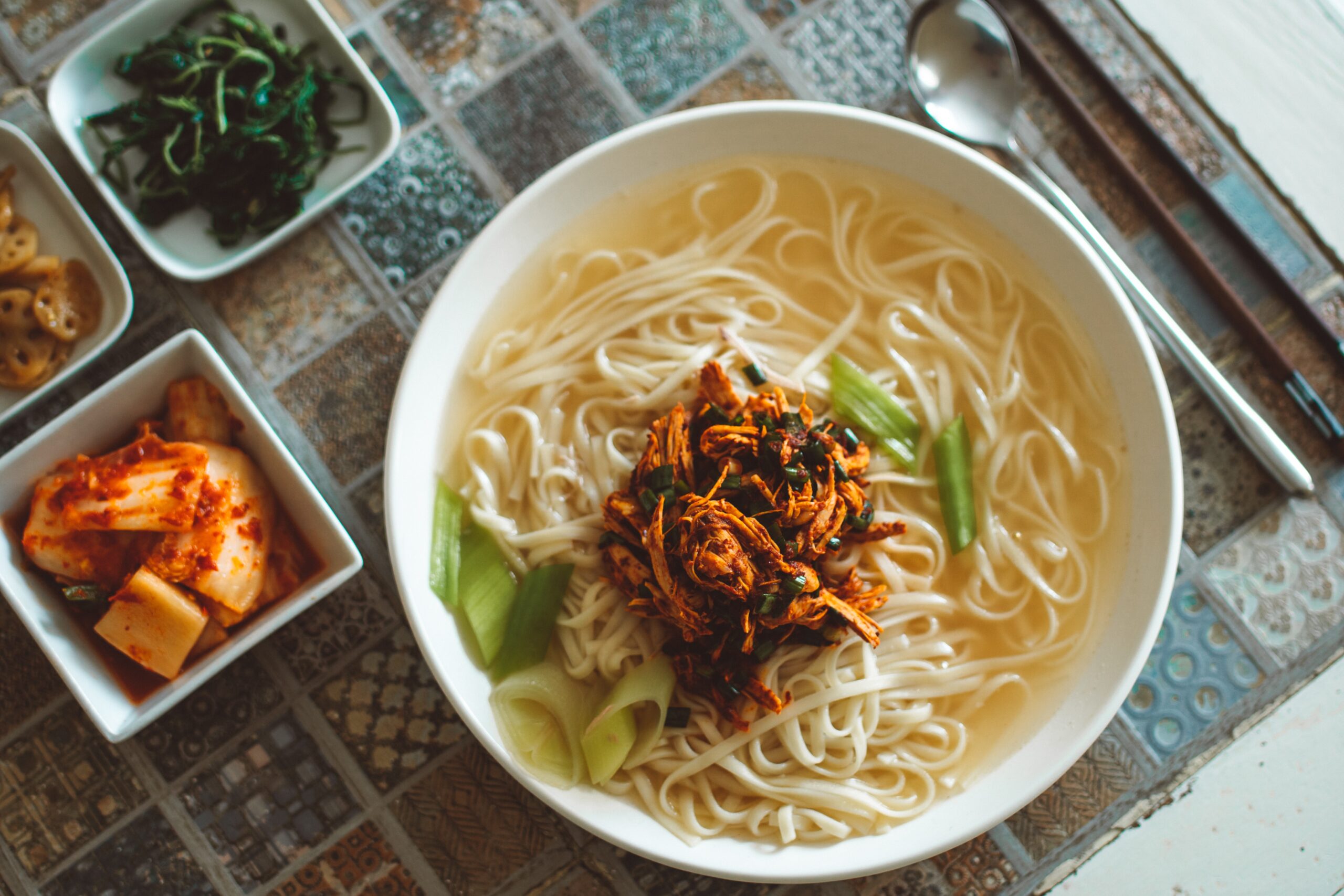Korean diet refers to a diet traditionally followed by Koreans specifically in South Korea. Korean cuisine is known for its emphasis on vegetables, steamed rice, fermented foods and also a good balance of flavour and textures.
But each cultural or traditional diet has its own pros and cons, thus here are a few aspects of a Korean Diet.
The Korean diet usually consists of the following ingredients:
- Rice – rice is a staple diet for Koreans especially steamed rice, barley, millets and various types of noodles are also common.
- Vegetables – meals consists of both raw and cooked vegetables including cabbage, radish, cucumber, spinach, zucchini and more. They consume pickles made of these above mentioned veggies.
- Fermented foods– is the most significant part of a Korean meal, since they are believed to have amazing health benefits. For eg: Kimchi, soya paste.
- Proteins– grilled pork, beef, chicken, red meat, and seafood are extensively preferred.
- Soup and stews – soup and stews are important component of their diet, such as kimchi stew (kimchi jjigae), miyeokguk soup (seaweed soup).
- Condiments and sauces– the diet is known for its rich flavourful sauces, garlic, ginger, sesame oil, etc are most common.
- Fruits- fruits are usually eaten as desserts with the most traditional rice cake.
- Balance and moderation- there is emphasis on balance of flavours, texture, colors in each meal. The best part is major emphasis is given on portion sizes/control.
- Tea- both hot and cold varieties of tea are consumed with meals also a way to relax.
The Korean diet, like any other dietary pattern, has its own set of pros and cons when considered in the context of a different country, such as India. It’s important to note that individual preferences, health conditions, and cultural factors can influence how a particular diet works for someone. Here are some potential pros and cons of adopting a Korean diet in India:
PROS:
1: Health benefits: Since the diet is rich in fruits, vegetables, fermented foods, legumes, etc it is high in fibre, essential good bacteria for gut health as they play a role of probiotics and other nutrients.
2: Balanced nutrition: Contributes to balanced and diverse nutritional intake.
3: Low processed foods: Korean meals consist of fewer amounts of processed foods and thus which is a benefit for overall health aspect.
CONS:
1: Cultural difference: Korean diets are way different than typical Indian diets in terms of flavour and textures, also spices. And thus, might not be culturally accepted.
2: Meat consumption: Vegetarianism is more common in India. Thus, may pose a challenge for Indians.
3: Cost: Korean ingredients are expensive and thus may pose a risk and not be feasible for everyone.
4: Rice consumption: rice is a staple food in Korean and India. But the portion sizes need to be monitored due to impact on blood glucose levels.
CONCLUSION:
When considering any dietary change, it’s important to consult with a healthcare professional or the best dietician in Mumbai, especially if you have specific health conditions or dietary requirements. They can provide personalized advice based on your individual needs and help you make informed decisions about incorporating elements of the Korean diet into your lifestyle in India.







